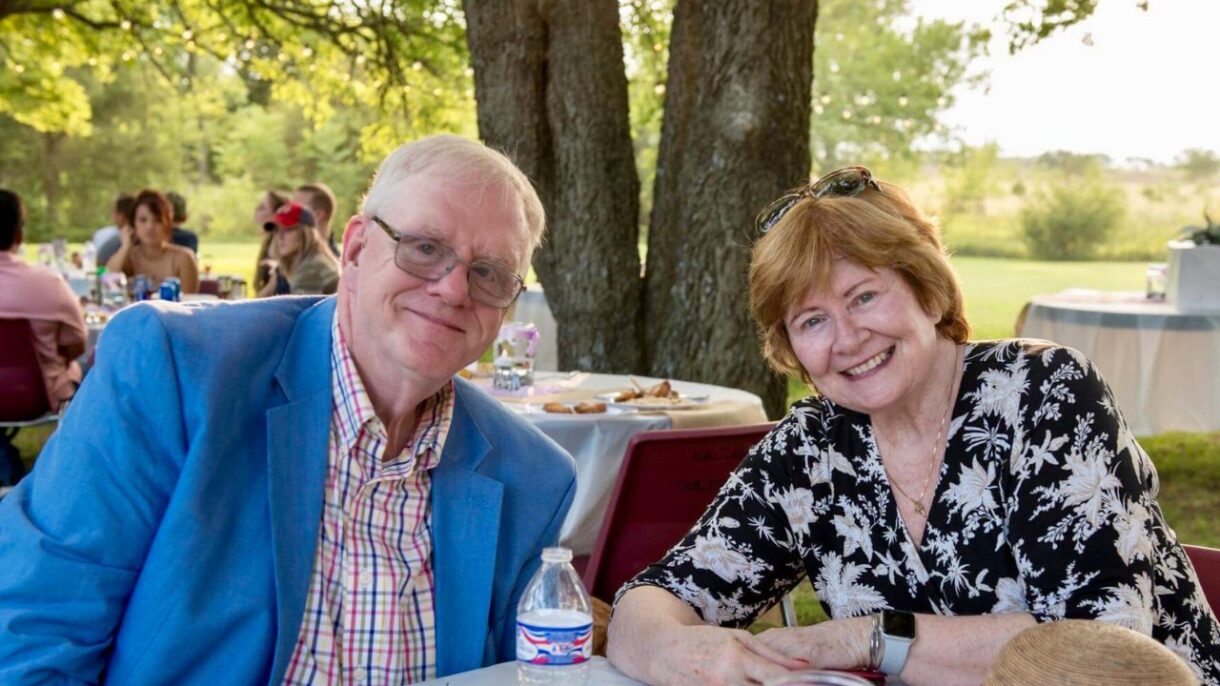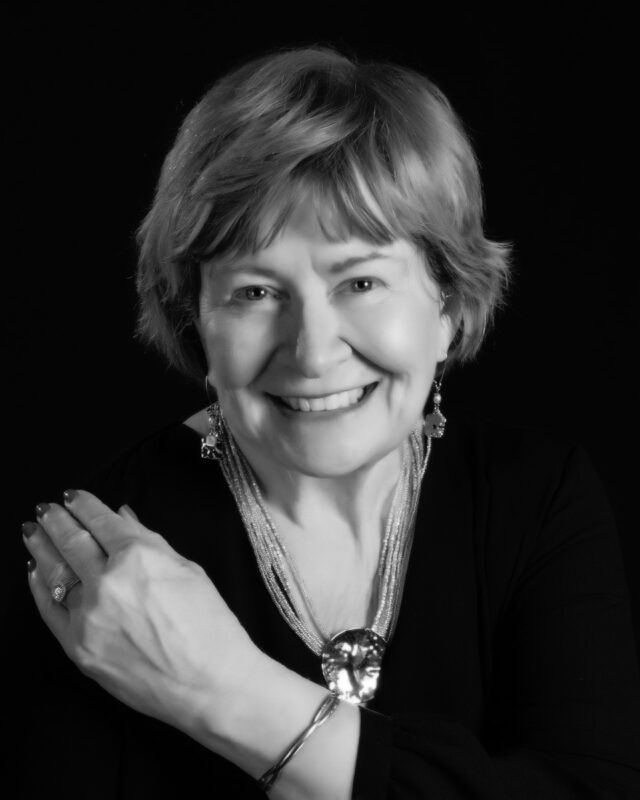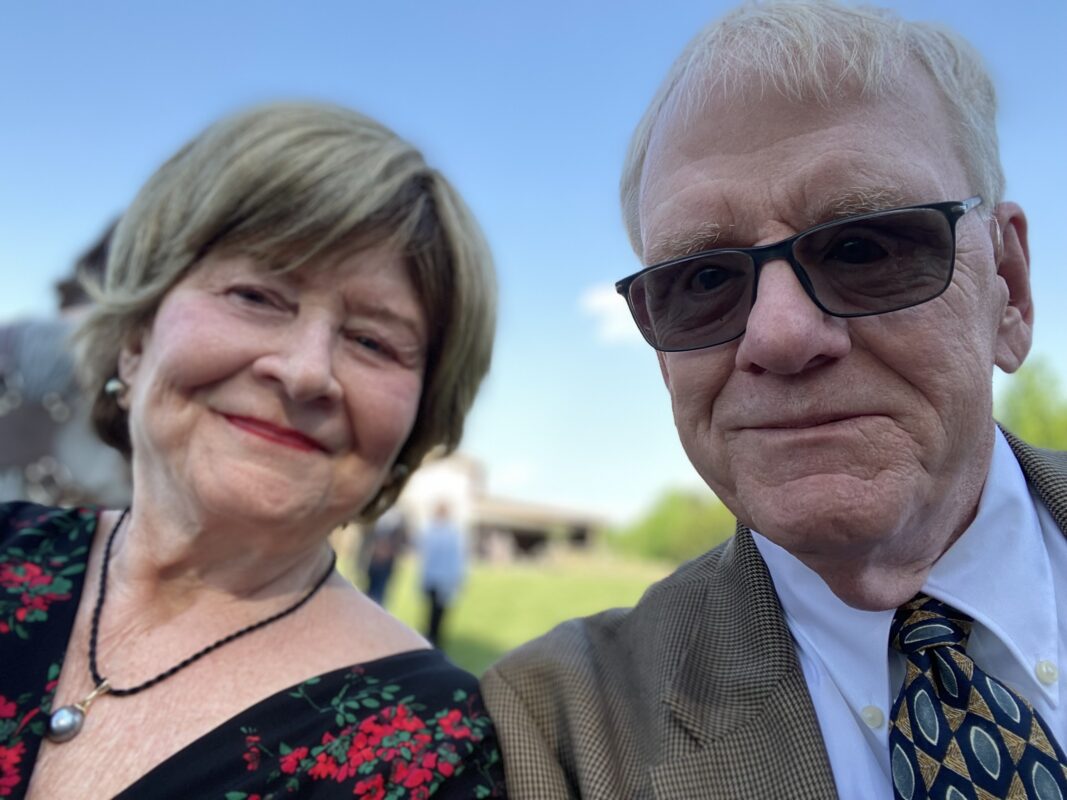Featured Survivor Story:
Clinical Trials Saved My Life

By Mara Klecker
When Barbara Hunter found out her melanoma had returned as Stage IV and was in her liver, she remembers saying something to the nurse about the speed of the recurrence. That news came in December 2020, less than a year after her dermatologist took a lump off of her head and determined it was melanoma.
“Yes, melanoma is fast, but we’re fast too,” the nurse said in response. That made Barbara feel hopeful – a feeling that grew when her doctor told her about a new clinical trial for the immunotherapy treatment that became known as Opdualag.
 “I said ‘Great. Sign me up,’” said Barbara, now 77. “I had no hesitations.”
“I said ‘Great. Sign me up,’” said Barbara, now 77. “I had no hesitations.”
She credits that confidence to the trust she had in her doctor.
“I knew that if this was what he thought would be a good thing for me, it was what I wanted,” she said.
She began the treatment at Johns Hopkins Hospital in February 2021 and did five rounds. The tumor in her liver shrunk considerably and is now considered stable. She still visits her doctor every three months for scans.
Throughout the treatments and the multiple hospital visits for severe side effects – including painful skin rashes, acute kidney failure and adrenal insufficiency – Barbara said her clinical trial nurse, Alice, was always there for her.
“Having a trial nurse was the very best thing about the trial,” Barbara said. “She’s just been wonderful and was really there for me and my husband.”
Barbara continued to work as a counselor throughout her treatment and finally retired at the start of 2023. She jokes that she’s still trying to find ways to fill her new-found time, but she enjoys reading, knitting and time with friends.
Since her cancer diagnosis, she said she’s even more focused on finding ways, both big and small, to help others. And she’s committed to noticing all the reasons she has to be grateful.
“Gratitude is always an important thing for everyone and it really does help you psychologically,” she said.
Now, even when she goes in for the brain MRIs she dreads, Barbara takes note of how kind the staff and nurses are to her. That is always something to be grateful for, she said.
That outlook has rubbed off on her children, too. Around Thanksgiving, one of Barbara’s sons texted her that he had been telling his own friends and family that he was most thankful for immunotherapy because it gave him more time with his mom.

Barbara tears up when she thinks about that sentiment and the meaning of “more time” with her husband, sons and three grandchildren.
“I feel like I’m on borrowed time,” she said. “I realize I’m so lucky to be here.”
She also feels proud to have been a part of a clinical trial that helped doctors understand a new drug.
As a child, Barbara was a “polio pioneer” – meaning she was part of the first national tests of the polio vaccine in 1954.
“My generation has seen so much progress in medicine, and I know that you’ve got to have people to try it or it’s not going to go anywhere,” she said.
As a member of a few different melanoma and immunotherapy support groups on Facebook, Barbara often sees posts from people taking Opdualag.
“I have a certain amount of pride that I was in that trial,” she said. “Now I’ve befriended these people who are taking it and it’s working for a lot of them. I’m happy that I could be part of that.”
Important Links:
- What Are Clinical Trials
- The Benefits of Clinical Trials
- Risks of Participating
- Patient Protection
- Costs of Participating
- Seeking a Second Opinion
- Finding a Clinical Trial
- Clinical Trial FAQs
Recent Posts

Your Style Can Save Lives – Lilly Pulitzer Giving Day is Here!

From Diagnosis to Crown: Miss Pennsylvania’s Journey of Advocacy and Awareness

Worried Your Melanoma Treatment Isn’t Working?

Genetic Testing Performed in Melanoma


